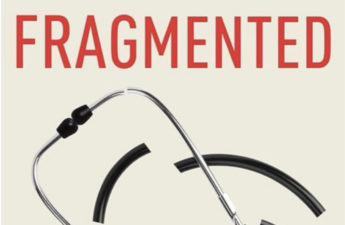Category: Healthcare Providers
Doctor shortages have hobbled health care for decades − and the trend could be worsening
For decades, experts have warned of an impending decline in the physician workforce. Now, Americans across all regions, specialties and socioeconomic backgrounds are experiencing that decline firsthand or personally.
Generative AI and deepfakes are fuelling health misinformation.
Here’s what to look out for so you don’t get scammed
Retired Doctors Step Up in the Face of a Rural Health Care Crisis
By Pat Raia, The Daily Yonder March 11, 2025 Four years ago, family practitioner Dr. Jeff Chappell retired from his post as medical director of the Wayne Community Health Center in Bicknell, Utah. He was excited to undertake a new…
‘A scarlet letter’: States aim to end stigma of doctors seeking mental health care
More than 40% of physicians, as well as medical school students and residents, cite fear of disclosure requirements on licensure forms as a main reason why they don’t seek mental health care.
Lawmaker proposes turning Evergreen State College into UW Health Sciences campus
The bill, if passed, would do away with The Evergreen State College.
Why seeing the same doctor could save your life
A review examining 1.4 million patients worldwide found that those who do not see the same doctor regularly are more likely to die within a certain period. This consistent relationship with a doctor is known as “continuity of care”.
Many of the benefits of this approach probably stem from the fact that doctors accumulate knowledge about an individual patient, which they then use in subsequent consultations to tailor advice.
The design and marketing of mental health chatbots may result in users’ misconceptions about their therapeutic value.
Do implicit bias trainings on race improve health care?
There is increasing evidence that implicit bias – non-conscious attitudes toward specific groups – is a source of racial inequities in certain aspects of health care, and lawmakers are taking note.
Many travel nurses opt for temporary assignments because of the autonomy and opportunities − not just the big boost in pay
That autonomy allowed them to pursue personal and professional interests that were meaningful to them, and it made some of the other hassles, such as long commutes, worth it.
The ‘doctor of nursing practice’ will see you now
Amid a shortage of doctors and an explosion in the number of nurse practitioners with doctorates, many nursing groups are pushing to expand what nurses can do without physicians’ supervision. Physicians, meanwhile, are pushing to keep nurse practitioners and physician assistants under their oversight, arguing that giving more autonomy to providers with less rigorous training could put patients at risk.
Modern medicine has its scientific roots in the Middle Ages
How the logic of vulture brain remedies and bloodletting lives on today
Book Review: Two Critiques of America’s Ailing Health Care System
Two recent books explore a truth that is obvious to nearly everyone who works in health care and surprising to almost everyone else: Through no fault of their own, doctors often don’t know what they are doing and, even when they do, America’s patchwork way of paying for health care may prevent them from doing it.
Doctors Emerge as Political Force in Battle Over Abortion Laws in Ohio and Elsewhere
Doctors who previously never mixed work with politics are jumping into the abortion debate by lobbying state lawmakers, campaigning, forming political action committees and trying to get reproductive rights protected by state law.
In the “Wild West” of Outpatient Vascular Care, Doctors Can Reap Huge Payments as Patients Risk Life and Limb
To move vascular procedures out of expensive hospitals, the government turbocharged payments to doctors’ offices. Instead of saving money, it started a boom that is making doctors rich and putting patients in danger.
Rural Health Clinics with ‘Head-to-Toe and Womb-to-Tomb’ Care
Rural health clinics are safety net providers whose original mandate was primarily to increase access to care for those on Medicaid or Medicare. They provided primary care and perhaps a few other services. But the Rural Health Clinic program has evolved over the years, and some clinics, like Primary Care Centers of Eastern Kentucky, have expanded their roles quite considerably.












